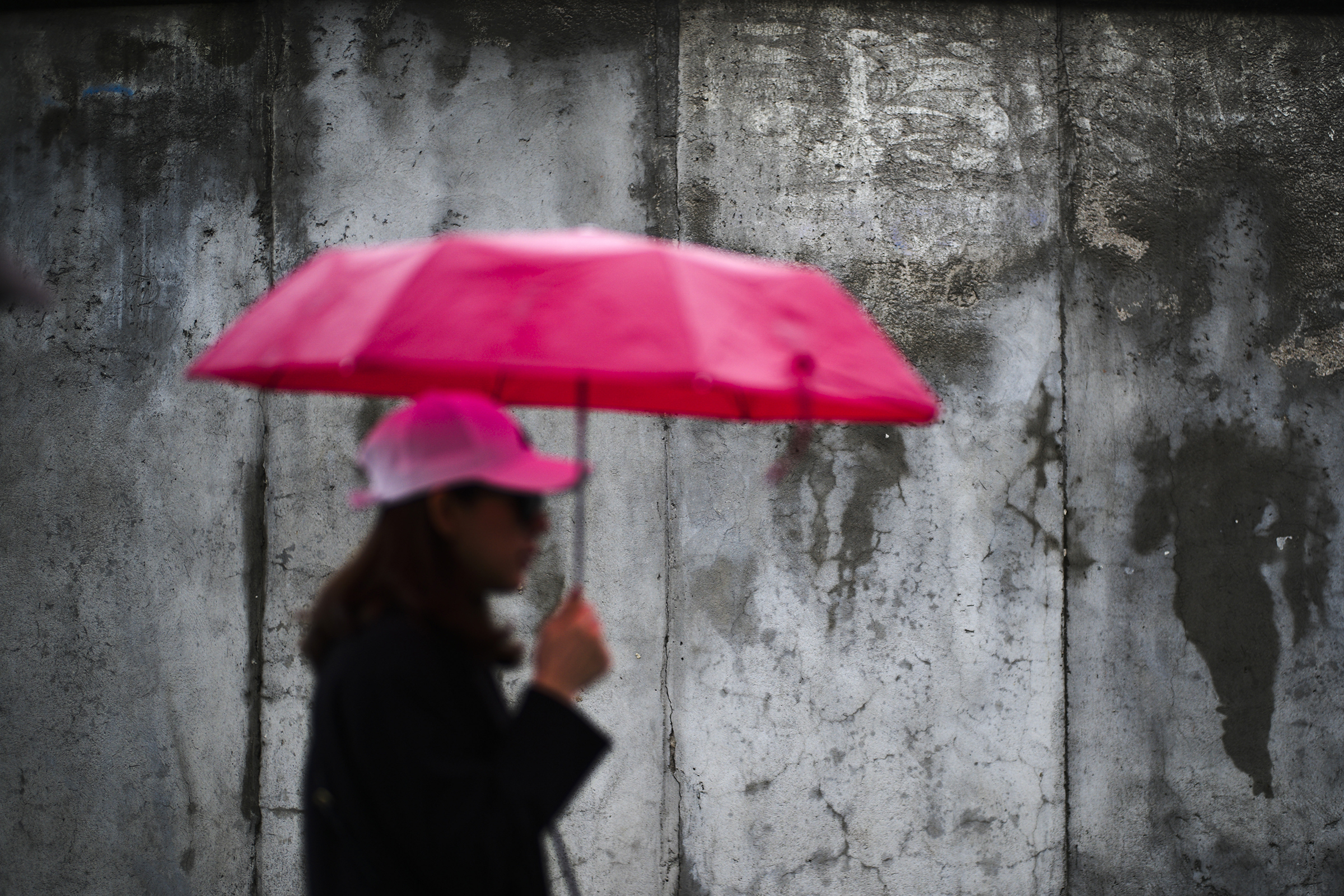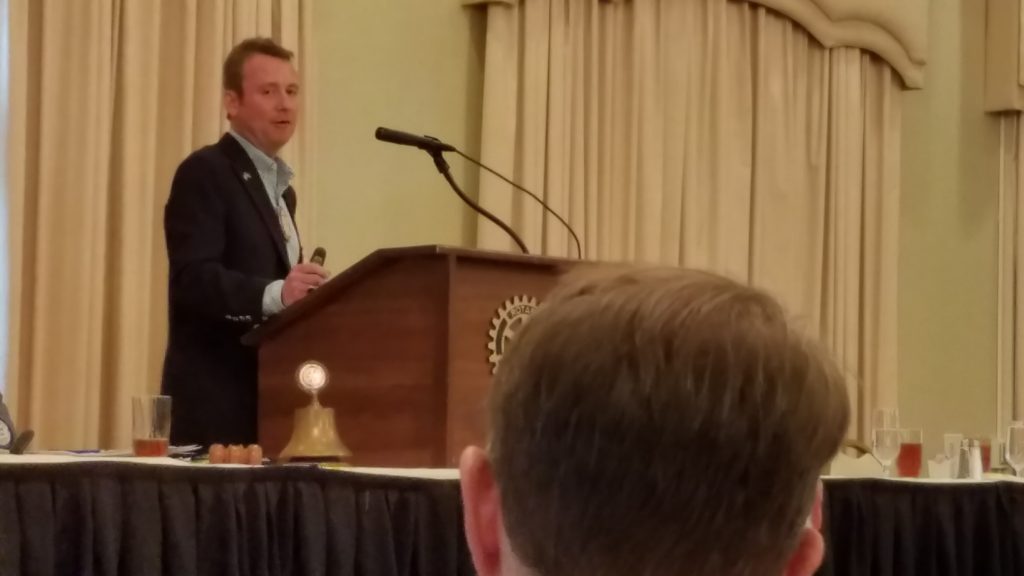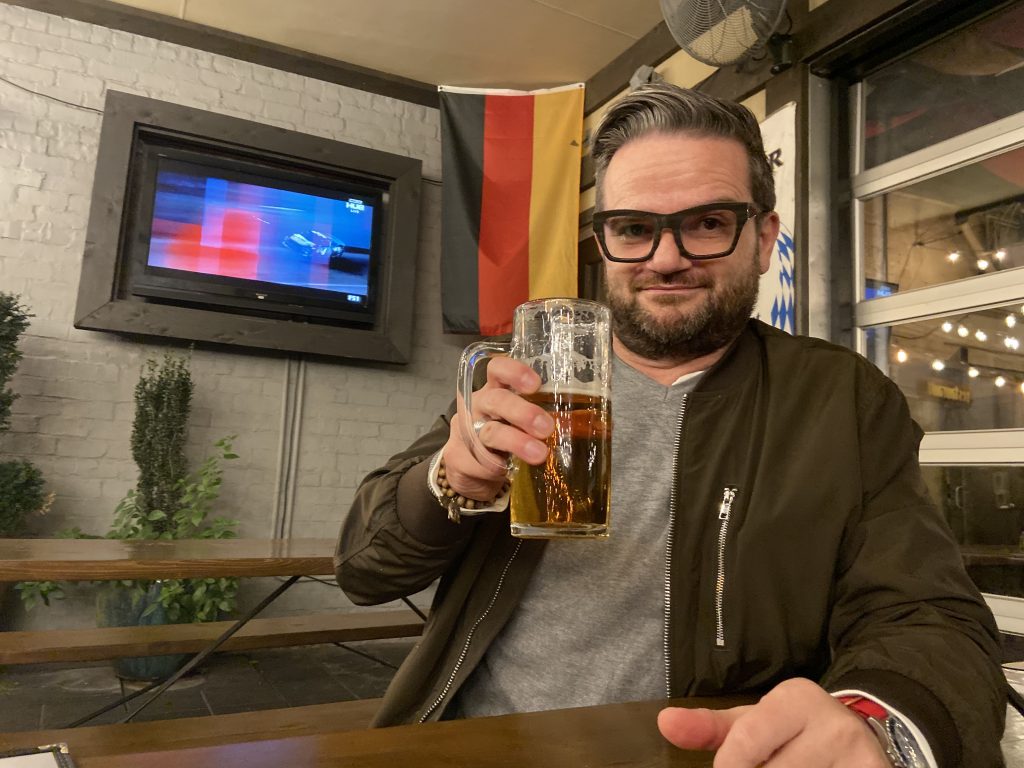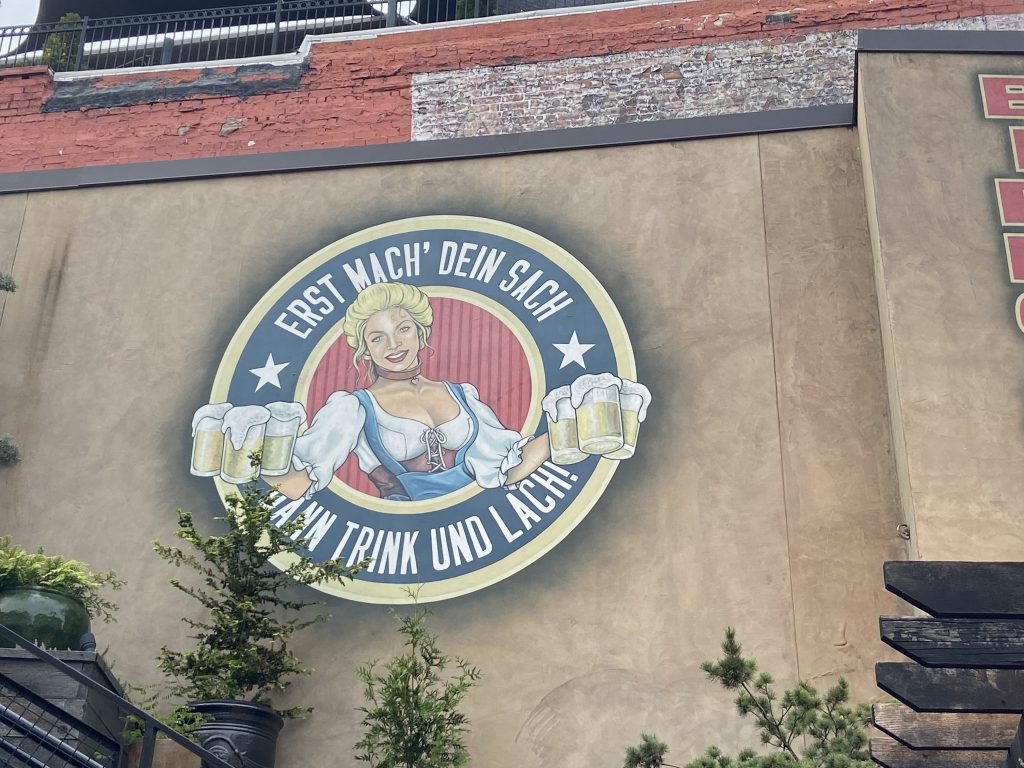30 Years After The Fall Of The Berlin Wall, Two Germans In Georgia Remember

A woman with an umbrella walks in front of remains of the Berlin Wall.
Markus Schreiber / Associated Press
Saturday marks the 30th anniversary of the fall of the Berlin Wall, which divided Germany into two states.
After World War II, the country we know today as Germany had been divided into four zones. The Soviet Union dominated the East, the West by the United States, Great Britain and France. In 1949, two states were created, the socialist eastern portion of the country known as the German Democratic Republic and the Federal Republic of Germany to the west.
WABE talked to two Georgians who grew up on opposite sides of the German wall.
Thomas Kislat was excited and nervous. He was in his car on the way to a Rotary Club luncheon in Rome, Georgia. The 43-year-old marketing director is about to tackle a big part of his identity.

He is East German.
“Today, I am going to give a presentation at the local Rotary Club in front of a hundred people, and the subject is the 30th anniversary of the fall of the Berlin Wall,” he said. “I am going to give an overview of the history of the wall, how it got started, and how was life behind the iron curtain, because I grew up behind the curtain. How it was when the wall came down and personal experiences.”
Christian Höferle is 48 and lives in Atlanta. He’s originally from West Germany.
He’s sitting in the German-inspired restaurant Der Biergarten Downtown. German pop music is blasting through the speakers, and there are depictions of fair-skinned, blonde people in Lederhosen.
Höferle immediately spots pseudo-German captions on the wall.
“It says ‘Erst mach dein Sach dann trink und lach,” first do your thing and drink and laugh. It is a tagline that I have never heard before and do not associate with Bavaria, so more power to you guys,” he said.
He is well aware that some Americans have stereotypical views of Germany. It’s something he noticed right away when he moved to the States 31 years ago. One year before the fall of the wall.

“The first time I spent in the US, was a foreign exchange student in 1988, I was a teenager in North Western Minnesota,” Höferle said. “Bloody cold winters and interested people asked me about my country, where I was from.”
People were confused by the two Germanys.
“I think back then, the East and West were framed by this global conflict by two powers at the verge of world war three, and I think Germany was just a pawn in this game,” he said. “I had people asking from which Germany I was from, and I told them if I was from East Germany, I probably would not be here right now.”
Back in those days, the privilege of traveling to different countries, let alone to another continent like America, was something the East German Kislat could only dream of, he said before his big presentation.
“I have a 10-year-old son, and if I remember when I was 10, I was behind the iron curtain; I had like six countries I could go to,” he said. “Not in my wildest dreams did I ever imagine building a career and living in the United States of America, the symbol of freedom which is just amazing.”
When he arrived at the Rotary Country Club, the hall was full. The eyes of the mainly American audience were fixated on the marketing director.
During his speech, he explained how strict the East German regime protected its borders.
“There were observation towers; there was a protection strip; there [was a] 10-meter control strip, this whole entire area they called the death strip,” he said. “So it was impossible to even attempt to try and cross over illegally.”
He also talked about the social setbacks people suffered in East Germany’s communist regime.

“You were not allowed to choose your profession. For luxury items, there were always waiting lists. You had to wait several months or years to buy these items,” he said. “There was always somebody around you. Half of you would work for the internal service. Freedom of speech was not existent. Even my parents at home would always tell me to be careful what you say.”
Even though legally these oppressions are now in the past, there is still a social divide between Germans of both sides, who even to this day bear distinct nicknames, Kislat said.
“Unfortunately, we are still not there. There is still the ‘Ossis’ and ‘Wessis’ mentality, which means the ‘Ossis’ are the Easterners, and the ‘Wessis’ are the Westerners. And even now, after 30 years, there are still some differences we need to overcome,” he said.
Höferle, the West German, said this imbalance goes back to the two countries not being equally unified, with instead the financially inferior East having to assimilate to the West.
“As a child of the privileged West, it is easy for me to point fingers and to say, we could have or should have done it differently, but when the Wall came down East Germany was just attached to West,” he said. “They just took on the legal framework of the West without major alterations, and I think that has created somewhat of an identity crisis for the 16 million people of former East Germany that joined the rest of the country.”
Meanwhile, Kislat got a standing ovation for his Rotary Club speech. And Höferle ended up finding a beer he liked at beer parlor. Both Germans are unified not only by the shared history of the two sides of their country but by having found a new home in Georgia.








